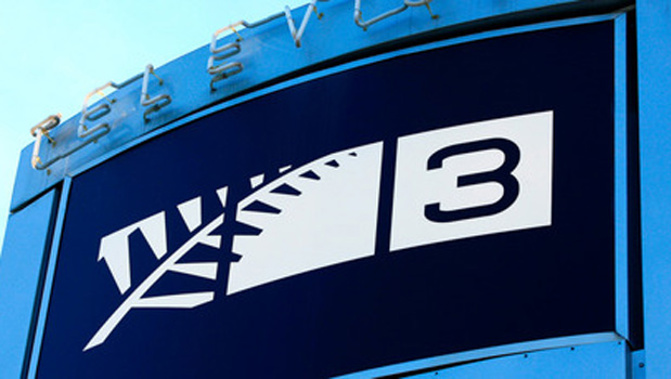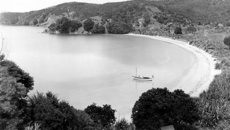
For me, it will always be “TV3”. The “Newshub” name came later, as New Zealand’s first privately-owned television network was slowly dismembered and disposed of by owners who could never seem to make it pay. Or, perhaps that should be, could never seem to make it pay enough.
The dream had always been that those owners would be New Zealanders. In reality, however, this country proved unequal to the task of stumping-up sufficient capital to keep a private television network profitable. TV3/Newshub always needed a huge amount of outside help to stay on air.
So, what began with CanWest riding to the rescue in the early 1990s, has ended in 2024 with Discovery Warner Bros announcing the Newshub’s closure. Henceforth, television news and current affairs will be a state monopoly.
The news and current affairs division of TV3 almost bit the dust at the very beginning of the network’s story. CanWest, all-too-aware of the cost of producing what most broadcasters regard as the heart-and-soul of any television network worthy of the name, were seriously contemplating jettisoning its news and current affairs division from the very start.
What CanWest hadn’t counted on was the strategic ingenuity of Rod Pedersen, the swashbuckling broadcaster who set up TV3’s news and current affairs division months before CanWest and its bean-counters appeared on the scene. Fully aware of how tempted the overseas investors, to whom the cash-strapped TV3 would inevitably be forced to turn, would be to kill his baby, Pedersen came up with a typically sneaky solution.
He made sure that all the producers, directors, camera-crews, technicians, reporters and presenters had eye-wateringly generous redundancy packages. When the bean-counters tallied-up how much it was going to cost them to close down the news and current affairs division, they reluctantly decided to keep it.
It was a good decision. TV3s news and current affairs took its lead from its boss, becoming as fearless and swashbuckling as Pedersen himself. The first inkling of TV3’s news and current affairs’ sock-it-to-‘em attitude came in the form of “The Ralston Group”. The format might have been borrowed from the US-based “McLaughlin Group”, but the young Bill Ralston, his producer, Keith Slater, and Pedersen himself, soon made the political panel show TV3’s own.
Why did it work? Primarily because Pedersen understood and valued both journalism and journalists. He realised that for the show to work he had to trust his “talent” to speak out forthrightly and entertainingly. More to the point, he had to make them believe that he and the network had their backs.
I got the Pedersen pep-talk the first time I appeared on “The Ralston Group”. He assumed I was familiar with the law of defamation? I was. He assumed that I knew there are lines that it can prove very costly for individuals and institutions to cross. I did. That is why he was going to trust me not to cross them. Beyond that, however, he was leaving it up to me and my fellow guests to give him a good show.
Just how much Pedersen and TV3 trusted its talent was made clear by a table positively groaning with food and drink – of which we were cordially invited to partake. Amazingly, in all the times I appeared on the show, I never saw any of the guests get drunk, or even tipsy, before the broadcast – which went out live. Pedersen’s trust in his talent was rewarded with the sort of lively political debate that has long since disappeared from New Zealand’s television screens.
Sadly, cancer carried off Rod Pedersen far too soon. But the anarchic, FU, style of the guy persisted. Ralston migrated to TV3’s rambunctious late-evening news show “Nightline”, where his signature “Yo! Nightliners!”, set the scene for a whole new style of journalism.
It was Ralston who wickedly filmed the contents of the then prime minister, Jim Bolger’s, briefcase. And it was his side-kick, a young reporter called John Campbell, who seriously pissed-off the Prime Minister’s media team by recording Bolger being serenaded by a group of school-children. The offending song? It was the Beatles’ “Nowhere Man”. The team at “Nightline” screened the item regardless. They were, after all, the people who thought it might be fun to broadcast sixty sexual positions in sixty seconds. “Did we just do that?”, said Joanna Paul to her equally stunned co-host, Belinda Todd.
What made TV3 so good at news and current affairs was, first and foremost, because its staff loved it. The network’s journalists relished the opportunity to generate what the “Washington Post” journalist Alan Barth called “the first, rough draft of history”. TV3’s bosses and journalists also had something that is lamentably rare in New Zealand’s journalistic history – courage.
Not for TV3 the safe suburban values of TVNZ’s Paul Holmes, not when they could offer their viewers the breathless empathy and furrowed-brow righteousness of John Campbell. Has TVNZ an interview to match Campbell’s stunning “Corngate” confrontation with Prime Minister Helen Clark? “Treachery!” she hissed, as, wreathed in a thundercloud of cold fury, she stormed out of the studio at the end of the interview. But “Campbell Live’s” producer, Mark Jennings, knew he had captured lightning in the can.
It also took courage to send their news anchor, Mike McRoberts, to cover the Israeli invasion of Lebanon. Ably assisted by Kiwi war correspondent, Jon Stephenson, TV3 gave New Zealanders an all-too-brief taste of the difference between taking news feeds from the BBC and CNN, and broadcasting historical events, as witnessed and reported by New Zealand journalists.
It’s only when I think back on the TV3 broadcasts of the 1990s and the 2000s, that the truly sorry state of New Zealand journalism is thrown into sharp relief. And it’s not just a consequence of CanWest being bought out by private equity vultures, and then on sold to the giant media corporations of the USA. The sad progress from TV3, to MediaWorks, to Newshub, has been matched, step for step, by the sad progress of the network’s journalism from courageous independence to woke conformity.
A media executive like Rod Pedersen simply would not be tolerated today. Too crude, too sexist, too unwaveringly committed to telling the truth and shaming the devil. The journalists and television producers of today are far less interested in producing “the first, rough draft of history” than they are in broadcasting the first and most ideologically-unassailable version of history.
And now, with Newshub’s execution scheduled for June, there is nowhere for the rebels, the anarchists, the jokesters, and the ideologically-incorrect non-conformists to go. From then on, New Zealanders will have but one television network, owned by the state, and staffed by journalists and producers who all turn up to work in the same ideological uniform.
We could be living in Russia.
Take your Radio, Podcasts and Music with you









